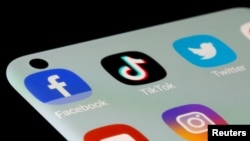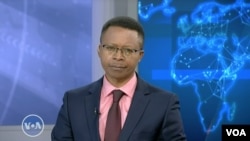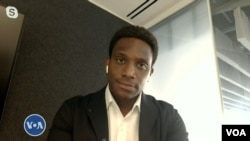Internet analysts say social media has become a resourceful tool for politicians to mobilize and interact with their electorate - while they also stress the importance of the traditional face to face in person campaigns.
Vincent Makori, Managing Editor of VOA’s daily Africa 54 TV newscast, said politicians from Kenya recognize that a large percentage of registered voters can be reached online, however there are other constituencies that do not have a social media presence.
“About 50% of registered voters are social media users and a great number are younger people - but at the same time, there are others who do not have a big foot print on social media so politicians like to go out there,” said Makori, adding, “Kenyan politicians like to really be in touch with the people on the campaign trail and enjoy the masses, the podiums and walking out to large crowds.”
Milain Fayulu, a Congolese technology entrepreneur and political science scholar said Congolese politicians understand that over 20 million DRC residents are online, and that social media will have an impact on the outcome of the 2023 elections. That, he says, is why political parties are hiring social media influencers to enhance their campaigns.
“Over 21 million Congolese are online, and out of that number over 98% access social media primarily through their cell phones that means one out of five Congolese are connected online,” said Fayulu, adding “debates are raging online, a number of influencers are hired by political parties and the truth is fake news travels faster than the truth so different types of factions are trying to harness it in different shapes or forms.”
Fayulu also says the growing influence of social media is creating an uneven battle ground for politicians.
“The problem that we are seeing today is social media gives players the ability to pay to get their voices heard - which is why factions with the largest amount of resources are able to dominate the public discourse,” said Fayulu. He added “This is why you are seeing political actors leveraging social media influencers to get their message across which may be detrimental to the organic voice beneficial to democracy.”
Makori supports Fayulu’s statements on democracy by arguing, “the speed at which information travels on social media is fast so depending on how it is used it can be a tool for promoting democracy,” said Makori, adding, “on the flip side if used in a negative way it can be a dangerous tool.”






